The Newest Tech Jobs Perfect for Business School Grads

As tech companies grow, they need talented people who can help them negotiate the transition from the two-guys-in-a-garage stage to the phase with the sprawling office parks and C-Span depositions. For these ever-changing needs, MBA candidates can be a perfect fit for the newest tech jobs.
Continue reading…Top MBA Recruiters: Netflix

In the 1990s, when you wanted to rent movies, there was only one way to do it: head into a Blockbuster. At least that was the case until 1997 with the advent of Netflix.
When the company first got its start, the world of on-demand streaming was nonexistent. Instead, Netflix.com was a DVD rental and sales site where you paid a low monthly fee for unlimited DVD rentals. By 2005, more than 4.2 million people became members of Netflix and Blockbuster began to fade.
Everything changed again in 2007 when Netflix introduced streaming, where members could instantly watch TV shows and movies online. All you needed was your parent’s password, and the rest is history.
Now, Netflix is a video streaming giant with 139 million paid memberships in over 190 countries. Members can watch as much as they want, anytime and anywhere, including original series, such as the highly successful Orange Is the New Black and House of Cards.
With all this going for it, it should be no surprise that Netflix is a sought-after employer for MBAs with a keen interest in disruptive tech and entertainment.
Why MBAs Love Netflix
Netflix is famous for its unique company culture. According to Business Insider, the company “does not tolerate either failing employees or ‘brilliant jerks.’” That can be both good and bad depending on your viewpoint. What it does translate into is a company that focuses on “freedom and responsibility,” meaning you’ll be expected to work hard, hit the ground running, and excel in a cutthroat environment.
“Being part of Netflix is like being part of an Olympic team,” Netflix tells the Wall Street Journal in a written statement. “Getting cut, when it happens, is very disappointing but there is no shame at all. Our former employees get a generous severance, and they generally get snapped up by another company.”
The good news is that this equates to impressive pay with 800 employees on Glassdoor giving the company 4.2 stars for “Compensation & Benefits.” On average, a manager at Netflix can expect to earn $178,176, while a senior manager makes $213,243. The key is that you perform and perform well at Netflix. There’s no handholding. Instead, you can expect long hours and a tough work/life balance rating at 3.3 according to Glassdoor.
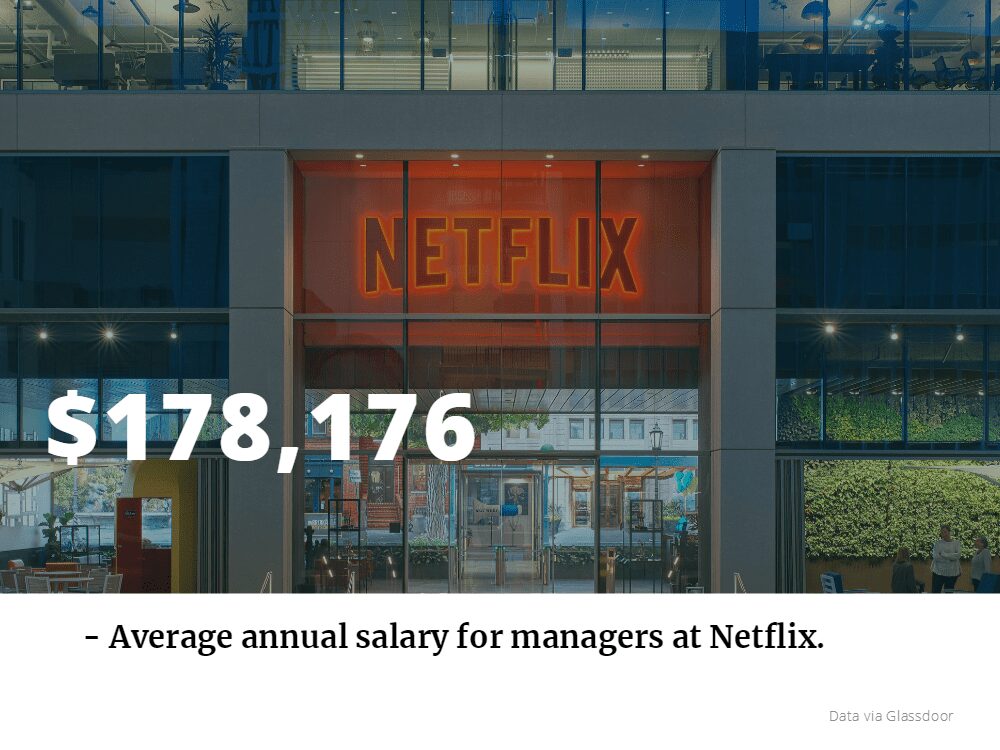
And there’s no doubt that hard work has paid off for the company. Since 2012, the Netflix stock has increased 2,500 percent and is the indisputable leader in the entertainment industry. It might be a fairly ruthless culture, but it’s working and producing results.
Netflix Careers
According to one former employee who posted an Indeed review in March 2019, “the benefits and the company itself were great: flexibility, values, inexpensive insurance, no dress code, etc.” And others agree.
When you work at Netflix you can expect half free lunches, an amazing kitchen with all kinds of snack and drinks, and fair PTO and sick days. However, you can also expect a demanding schedule that requires you to be on your game and getting the job done.
“Fast-paced, dynamic company, great exposure, and learnings. High impact and good [renumeration] and perks. Many peoples dream company to work for,” one anonymous former director wrote on Glassdoor
Getting Hired at Netflix
Don’t expect getting a job at Netflix to be a piece of cake. According to a 2016 Reddit AMA (Ask Me Anything) hosted by a purported Netflix employee, the interview process is long, involved, and designed to make sure your personality fits the company culture, and you’re technically capable.
According to the Reddit, you’ll talk to “eight or so people,” some of whom are from HR while others are from higher up in the department where you’re applying to. Typically, if even a single person doesn’t like you, you won’t get the job. You’ll even be flown out to headquarters for an all-day interview just to make sure you’re the right person for the job.
As for what Netflix looks for in its employees, they want you to demonstrate qualities that align with their values. This includes:
- Courage
- Humility
- Curiosity
- Passion
- Being open to providing and receiving feedback
- Scrappiness and grit
- Team player
- Inclusive and self-aware
For more insight, there’s a great Netflix podcast that is all about how the company hires, which you can watch here.
Current Netflix Careers
Generally, Netflix does not high new grads or interns. According to a thread on Quora, Netflix does not consider itself an entry-level company. If you’re an exceptionally skilled candidate or someone with a rare skill, the company may make an exception, but for the most part, the company is looking for employees that already have experience.
There are currently more than 450 job openings at Netflix in California, London, Singapore, Amsterdam, Tokyo, and other locations around the world. Those openings include jobs in:
- Business development
- Marketing and public relations
- Finance
- Data, analytics, and algorithms
- Design and product innovation
The best part of every job opportunity at Netflix is the “freedom to do whatever you think is necessary to move the business forward. The worst thing is that nobody will tell you how to spend your time or what exactly you should be working on (outside of setting larger goals for your role),” according to a LinkedIn Q&A
A Breakdown of LinkedIn’s Top U.S. Companies for 2019

If you’re in the midst of your MBA studies, there’s a good chance that you’ve already started a career that you love, or that you’re seeking a transition into a new industry. Perhaps you’re still in the exploratory stage with regard to future jobs and other post graduate options. Either way, it’s helpful to set your sights high as you make your next move.
LinkedIn recently published its list of 2019’s Top Companies based upon user data. Authors asked which companies were attracting the most attention from job seekers, and which ones retained the most satisfied employees after hiring in order to compile the list. To make it useful to our readers, we’ve broken down the list into the top five in three categories: tech, finance, and entertainment.
Technology Companies
Alphabet, the parent company of Google, YouTube, and Nest, among others, tops the list of the most desirable firms on LinkedIn’s list. With 98,800 employees worldwide, Alphabet is headquartered in Mountain View, CA, and has offices in New York City and Seattle. According to LinkedIn’s data, Project and Program Management, and IT positions have the highest number of new hires. With Google’s current investment of $13 billion for expansion in the U.S, it is a great time for MBAs to explore possibilities at Alphabet.
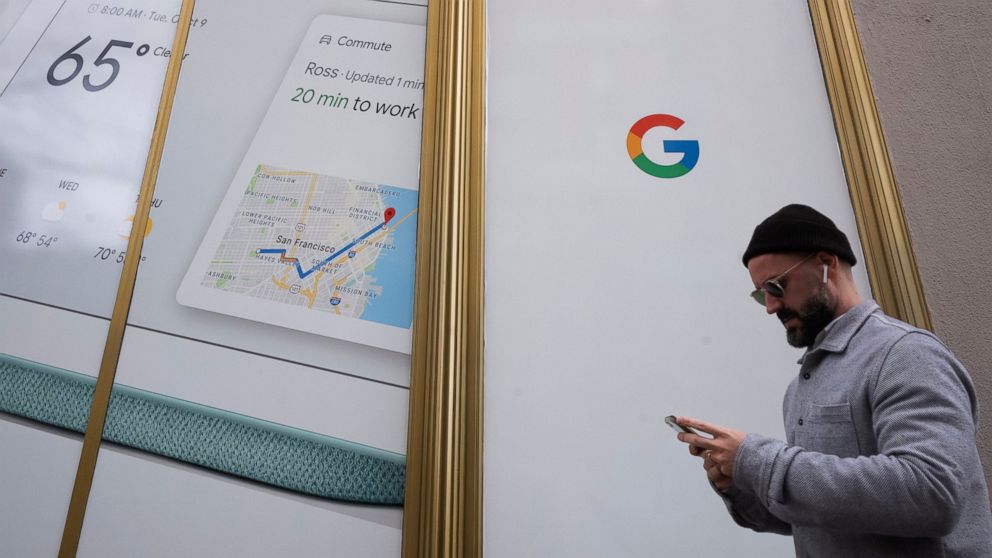
Google’s parent company, Alphabet, plans on expanding across half of the U.S. by the end of the year.
Current open positions include a Project Managment Summer Internship in Mountainview with Loon, an Alphabet subsidiary; and a Summer internship at Google’s Reston, VA office with one of several teams including finance, strategy, product management, and operations.
Facebook, the parent of What’s App, Oculus VR, and of course, Instagram, was ranked second overall on the LinkedIn ranking. Like Alphabet, Facebook employs the most new hires in its project/program management and IT departments. Facebook has 36,000 global employees and is headquartered in Menlo Park, CA, and its top hiring locations are Seattle, New York City, and San Francisco.
Facebook is now hiring a Consumer Marketing Manager for Messenger, a Marketing Manager for Data & Privacy, a Finance and Business Operations Manager within its Global Marketing Solutions department, among other positions.
San Francisco based cloud software company Salesforce, with 22,000 employees across the U.S., is another of the top companies for tech-related careers according to LinkedIn. With a large number of new hires in engineering, business development, and sales positions, Salesforce is a wise target for MBAs. Current open positions include a Platform Engineering Product Manager in both the Dallas, TX and Indianapolis, IN offices; and an Analytics Lead for Strategy & Growth in the San Francisco office. All three of these positions encourage recent MBA grads to apply.
/cdn.vox-cdn.com/uploads/chorus_image/image/61523143/shutterstock_1108759433.0.jpg)
Outside the Salesforce Tower, the tallest building in San Francisco, located in the downtown South of Market district. The company was ranked fourth overall on the annual LinkedIn list.
With available positions for Senior Managers in New York City, Annapolis, MD and Durham, NC, along with Finance and Business Strategy positions in Culver City and the Cupertino headquarters, Apple is another top destination for job seekers on LinkedIn. New hires most often land in IT, Engineering and Sales Positions. Its ever expanding campuses are set to hire 20,000 people by 2025, and a brand new, $1billion campus is planned for Austin, TX.
Oracle, ranked ninth overall on the LinkedIn list, employs 137,000 global employees, and also hires many of its new employees in IT, sales, and engineering. With a reputation for hiring a large number of new grads, Oracle takes great pride in a culture of camaraderie. In a recent LinkedIn article on the topic, Kim Levin, Oracle’s senior organization and talent development consultant, says, “We understand how important it is to have that first, successful onboarding.” Its robust recruitment program hires from a number of large universities like Ohio State and Penn State, along with private colleges and universities.
Recruits are sent to one of Oracle’s hubs in Austin, TX; Reston, VA; Burlington, MA, or Santa Monica, CA, where they can connect with fellow recruits and become acclimated to their jobs. The company is currently hiring an Innovation Program Strategist in Philadelphia, as as well as for a Financial Analyst position in Reston, VA, and Cloud Sales positions in Chicago and Atlanta.
Entertainment Companies
Amazon, third on LinkedIn’s list, employs 250,000 people in the U.S. alone. As parent company to Whole Foods, Zappos, and Audible, along with its thriving media and entertainment brand, Amazon has a multitude of job opportunities for MBAs. Operations, Engineering and Sales are among the top departments for new hires, and the company is also seeking to fill positions for a Senior Product Manager for Technical Products, as well as Program and Project Manager positions in Seattle.
/cdn.vox-cdn.com/uploads/chorus_image/image/58430365/shutterstock_797247802.0.jpg)
Despite major expansion, Amazon, ranked as the second best company in the U.S. by LinkedIn, the tech giant still calls Seattle home, with plenty of openings for MBA talent.
The 11th ranked Netflix, with 5,700 employees in the U.S., continues to expand its workforce in an effort to remain competitive amidst the growing crowd of streaming content providers. According to a recent Quartz article, Netflix wants to be perceived “less as a subscription-driven technology business and more like a movie studio or TV network’, which is good news for MBAs seeking an entertainment focused career. Netflix is currently hiring in content marketing management, product management, and finance, ad well as in multiple other roles at their Los Angeles offices.
Although it was originally founded outside the U.S., music streaming giant Spotify ranked 14th overall on the annual LinkedIn list, with offices in Los Angeles, San Francisco, Boston and New York. Spotify is hiring Business Development Analysts, Project Managers, and Production Managers and various other positions nationwide.
Comcast NBCUniversal continues to rule the media landscape in the U.S. with 184,000 employees. The company’s top hiring cities are New York, Los Angeles, and Philadelphia, where its new Technology Center recently became one of the city’s largest employers. Comcast is currently seeking a VP for eCommerce and a Financial Operations Auditor in Philadelphia, along with MBA Summer interns in its Santa Monica, CA location.
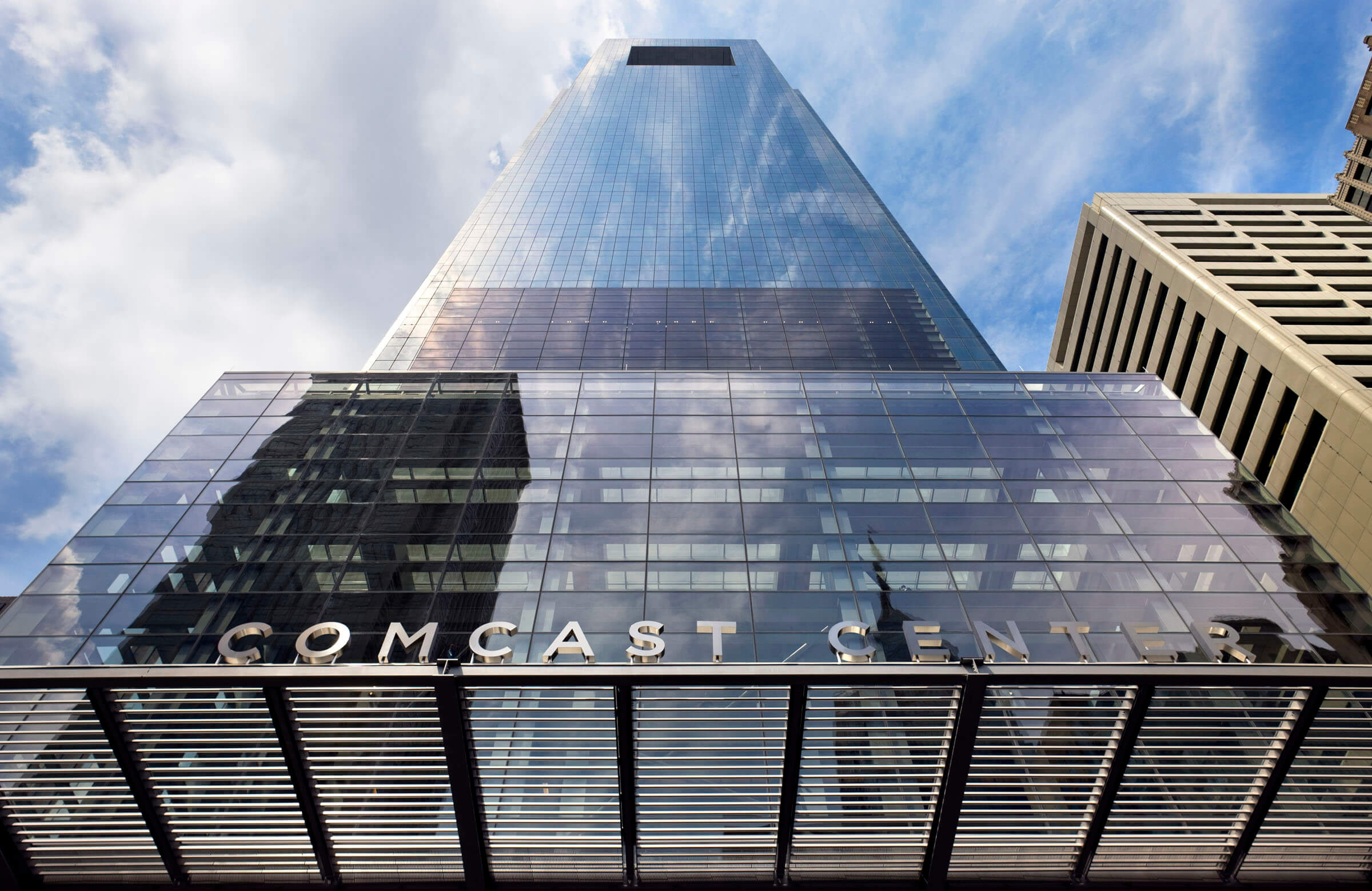
The massive Comcast Center in Philadelphia tops the city skyline, with the two biggest buildings in the United States outside of New York or Chicago. The major media company ranks 15th overall on the LinkedIn top company list.
Disney, the parent company to ESPN, Pixar, and ABC, has over 200,000 employees globally. It hires the most new employees in operations, media & communications, and business development. The company supports education for its staff at all levels—it will cover the price of school for both full and part-time employees. Disney’s top hiring U.S. locations are Orlando, Los Angeles, and New York. Current available positions are a Digital Pricing Manager in New York, a Senior Financial Analyst in Orlando, and a Finance Manager in LA.
Finance Companies
One of Deloitte‘s most appealing facets is its encouragement of entrepreneurship—Startup Deloitte challenges employees to pitch ideas for startups to be funded by the company. With a workforce in the U.S. of close to 85,000, Deloitte brings in the most new hires in consulting, business development, and accounting roles, and its locations in Washington DC, New York City and Chicago are the most desirable according to LinkedIn.dds Margot Thom, Deloitte Global’s Chief Talent Officer, says, “As an organization, Deloitte is dedicated to creating an experience that allows its people to thrive and grow.”
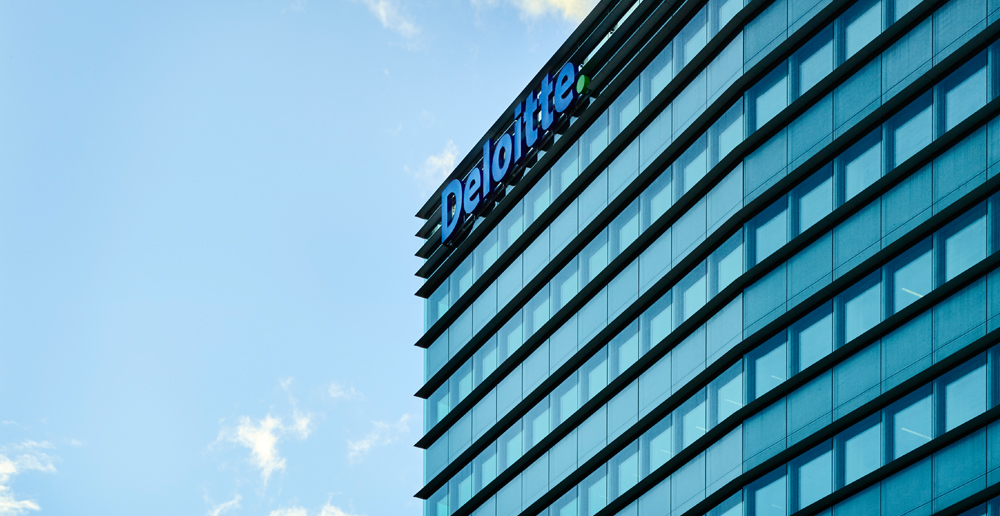
With nearly 85,000 employees, Deloitte is the top-ranked finance company on the LinkedIn Top Employer list at fifth overall.
Deloitte is currently hiring for numerous positions, including Accounting and Reporting Manager in Philadelphia, Strategy and Operations Associates in New York and Chicago.
If you’re hoping to work with Bank of America, ranked 18th overall, it’s good to know that they currently acquire the most new talent in finance, sales, and support roles. New York, Dallas-Fort Worth, TX and Charlotte, NC are its leading locations. Globally, Bank of America employs 200,000 people.
Available job openings include an Executive for InterAffiliate Services and a Product Services Consultant in Charlotte, along with a Senior Relationship Manager position in Boston.
Goldman Sachs, 21st overall, hires the most new people in IT, business development, and finance, and has a worldwide headcount of 36,600. It has recently implemented higher standards for diversity, pledging to grow its numbers of female and non-white employees. Dallas-Fort Worth, Salt Lake City, and New York City are its most-searched locations, according to LinkedIn. Goldman Sachs is hiring in New York City for Associates and Analysts, and also for Operations and Associate positions in Dallas-Fort Worth.
Citi, 22nd overall, has a high numbers of new hires in business development, finance, and leading offices in New York, Dallas, and Tampa, where they are all currently hiring for analyst positions. Citi employees 66,000 people in the U.S., and each of these offices is currently hiring analysts, among other positions.

Like Goldman Sachs, Citi has stated its commitment to increasing diversity—the company has pledged to expanding the numbers of women in its highest ranks, from VP to Managing Director, to 40 percent by 2021.
Marketing Magic, The Business of TV, and More – New York News

Let’s explore some of the most interesting stories that have emerged from New York business schools this week.
Magic and the Modern Business World – Gabelli Connect
Gabelli School of Business Clinical Associate Professor Timothy Malefyt uses capital-M ‘Magic’ (think David Blaine, Siegfried & Roy, Penn & Teller) to explain how “magical practices can be found in contemporary capitalist societies.”
In his new book, Magical Capitalism: Enchantment, Spells, and Occult Practices in Contemporary Economies, Malefyt explains, “Magic offers a way to make a connection and effect change through willful beliefs and ritual practices.”
He elaborates:
“[In advertising] you don’t know if the customer will like this ad so similarly to how magicians rely upon magical rites, advertisers often use “formulas” to feel comfortable in their presentation to a client, such as habits surrounding the time they present or the way everyone is sitting at the table.”
You can read more about Malefy’s work here.
Binghamton University Student Approaches TV Production with Business Mindset – Binghamton SOM Blog
The Binghamton SOM Blog recently profiled business administration student Zach Homler, who has made significant early strides toward a promising career behind the scenes of film and television.
Following an internship on the Fusion and truTV variety talk show The Chris Gethard Show in which he “helped prepare celebrity guests such as Jason Sudeikis, Seth Meyers, Nick Kroll and Ellie Kemper,” he landed back-to-back PA (production assistant) gigs on Netflix and Amazon Prime shows.
Homler compares his experience to a case competition. “You have this project or this problem to solve, and you do some work, weigh your options, then present your recommendations to the decision makers.”
Homler hopes to pursue a career in either in entertainment law or talent management.
“This is me getting my foot in the door. I’m able to get that ground-up perspective of what goes into these productions, and I think putting in that work and understanding the day-to-day process is only going to help me on the business side of things. And so far, it’s been a lot of fun.”
You can read more from the recent interview here.
Fred Schaufeld Talks about Luck, Opportunity and Lehigh – Lehigh College of Business and Economics News
As part of its Distinguished Finance Speaker Series, the Lehigh College of Business and Economics recently hosted Fredrick D. Schaufeld (’81 ’15P ’17P), whose presentation Managing Luck: Lessons from Lehigh and Life When Not Everything Goes Quite as Planned contained many hard-won lessons from his career as Co-Founder and Managing Director of venture capital private equity firm SWaN & Legend Venture Partners.
Schaufeld offered three major takeaways for the audience:
- Failure does not equal death. “Wherever you are in your career, you’re building a portfolio of ideas, relationships, networking and skill sets. When you fail, you might go back a little, but you can build on that and keep going forward.”
- Your time is worth more than your money. “If you’re miserable, do it a different way or do something else.”
- Don’t wait for wisdom to find you. “You’re wealthy now, whether you realize it or not. I learned that at a relatively young age, with no money in my pocket.”
Schaufeld explains, “[SWaN & Legend] invest in special human beings who lead companies with social impact. Ethics mean a lot to us. We focus on companies people are passionate about,” such as KIND Healthy Snacks, Gwynnie Bee, Airbnb, Sugar23, the Washington Nationals, Washington Capitals, and the Professional Fighters League.
You can read more about the recent event here.
The Potential Impacts of Net Neutrality on Higher Education

F.C.C. Chairman Ajit Pai’s decision last week to repeal Obama-era net neutrality regulations, which inhibited ISPs from paid prioritization and interfering with users’ online experiences, could have widespread implications beyond the speed of your Netflix stream.
A host of critics argue that the controversial new initiative essentially deregulates the Internet from a governmental vantage point and gives ISPs (internet service providers) free reign to control what you see as they see fit. That could mean offering fast lanes to the highest bidder—at the consumer’s expense, naturally—or censoring any content that might be remotely critical of, say, AT&T’s political position.
Pai believes the repeal will foster competition and ultimately benefit consumers. “Broadband providers will have more incentive to build networks, especially to underserved areas,” he told the NY Times after the F.C.C. cast its final votes on December 14. The vote split directly on party lines, with Republican commissioners winning by a count of 3-2.
After the vote was concluded, Mignon Clyburn, one of the two Democratic commissioners to vote no on the new provisions, said, “I dissent, because I am among the millions outraged. “Outraged, because the F.C.C. pulls its own teeth, abdicating responsibility to protect the nation’s broadband consumers.”
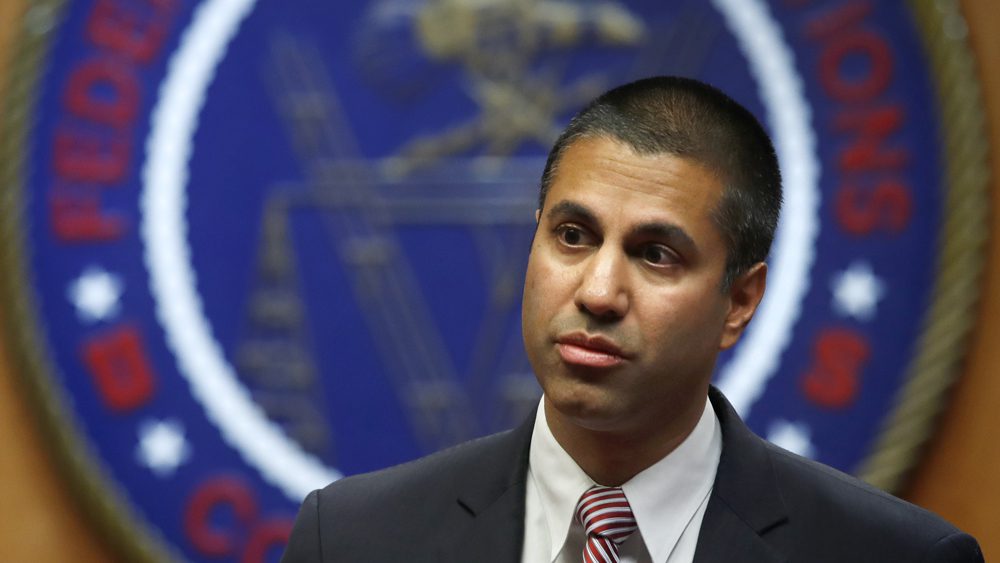
F.C.C. Chairman Ajit Pai. Photo via AP/Jacquelyn Martin
In terms of public relations, ISPs appear conflicted about which foot to lead with. According to Wired, in the months leading up to the repeal, Comcast publicly shared a net neutrality pledge and then quietly removed it once the votes were concluded, while Verizon promised not to open up fast lanes when it “already blocks mobile subscribers from accessing high-resolution video streams unless they upgrade to more expensive plans.”
It’s clear that this F.C.C. decision is a crippling blow to the utopian promise of the Internet, whose innovations were outgrowths of a level playing field. Netflix voiced disappointment last Friday, in which the company said “innovators, large and small, to oppose this misguided F.C.C. order.”
Consumer advocates are deeply concerned about the repeal’s impact on higher education, particularly in a moment where educators increasingly rely on YouTube lectures, video-chat services, and distance learning applications for their curricula.
There’s a scene in Werner Herzog’s 2016 documentary“Lo and Behold” in which he interviews Udacity founder and Stanford professor Sebastian Thrun about a robotics seminar, which was made available to the general public through open courseware technology. Two-hundred Stanford students enrolled in the class along with 160,000 students from the “open world.” Upon realizing that the highest achieving Stanford student ranked 413rd overall, Thrun remarked, “My God, for every great Stanford student, there are 412 amazingly great, even better students in the world.”
In an interview with Wired, Washington State University Vancouver’s Mike Caulfield explains, “Killing net neutrality will throw us back to the Dark Ages and the people that is likely to hurt most are actually rural populations that don’t have face-to-face access.”
In an interview with EdWeek, Consortium for School Networking Executive Director Keith Krueger explained matter-of-factly, “School systems will now face a bleak reality: reduced choices, higher prices, and fewer innovative tools.”
The introduction of “slow lanes” has the potential to impact peer-to-peer interactions like videoconferencing, as well as institution-wide adoptions of cloud-based models. Caufield explains, “Science or programming courses might require students to download large data sets that, if relegated to a slow lane, would take a prohibitive amount of time to download, or could help burn through data caps.”
There is a more pervasive worry that “education companies that rely on relatively fast delivery of content to schools could lose out to deep-pocketed vendors that can afford to pay internet service providers more for faster, higher-quality access,” according to an EdWeek article.
In a captivating Medium entry, Tressie McMillan Cottom, a sociology professor at Virginia Commonwealth University and faculty associate at the Berkman Center for Internet & Society, says that while changes to how Americans use the internet might not change right away, it will likely affect the amount of resources available to students who utilize online education.
“Online education was built, and sold to stakeholders, on the premise of affordable, accessible internet access,” Cottom writes.
“The concern is that companies tend to want to maximize profit. It isn’t hard to imagine telecom companies allowing companies who can pay for premium internet space to skew what is and is not available on the internet.”
Cottom telegraphs what she calls the “doomsday predictions”: charging escalating prices for basic internet consumption, leaving poorer, disadvantaged users with worse options. And that, Cottom explains, doesn’t even consider the potential socio-political ramifications. “For many, the end of net neutrality also means the regulation-by-capital of online spaces where minority groups shut out of traditional media, politics, and economies have thrived (albeit always at the precipice of precarity),” she says.
Other critics, such as University of Michigan professor Kentaro Toyama, in an recent interview with EdSurge, says that the issue was not the repeal vote, but the “already eroding” nature of the internet itself. “Technical systems are predominantly paid for and operated by private companies, which exert a lot of control,” he notes.
Indeed, before the vote, some of the largest ISPs were already practicing speed-throttling tactics, such as Comcast’s “unlimited” phone data plans that slow down after 20GB of use, and Verizon, which was caught earlier this year slowing down user speed.
But when it comes to higher education, Toyama is not worried. “Though there might be some marginal impact on the degree to which online courses like mine could be viewed by any given student, it is unlikely to be at a level noticeable by the average user,” he says.
The F.C.C. responded in defense of their new initiative that ISPs will have to publicly disclose any practices that block or throttle access to online resources, but Ed-tech advocates believe these so-called “transparency requirements” will simply force education officials to accept whatever terms are placed in front of them.
What To Expect at Chicago Ideas Week 2017

From October 16-22, the world’s top thinkers, tastemakers, idea generators, and innovators descend upon Chicago for the seventh annual Chicago Ideas Week. Ideas Week is the largest affordable ideas festival on the planet, bringing a variety of talks, panels and hands-on labs to venues across the Windy City. Continue reading…
